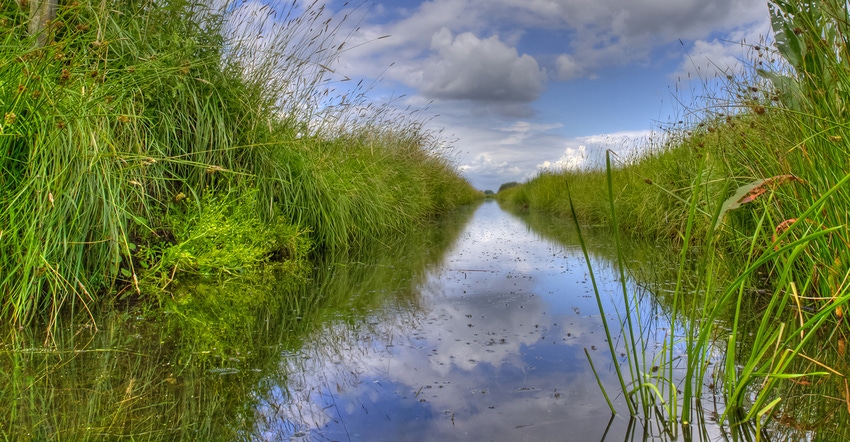May 31, 2017

While most headlines emanating from Washington, D.C., involve health care, taxes and awkward press conferences, work has also begun on overhauling the U.S. Environmental Protection Agency-Army Corps of Engineers’ proposed Clean Water Rule, more commonly known as the Waters of the U.S. (WOTUS) rule.
Many farmers welcomed the new administration’s executive order directing the agencies to review the proposed rule and then publish for notice and comment a proposal to rescind or revise the rule. In addition, Congress is weighing in, as the Senate Environment and Public Works Committee held a hearing in April to review the “Technical, Scientific and Legal Basis of the Waters of the Unites States Rule.”
The rule, as rolled out by the previous administration, was met with much opposition and concern across the board from agriculture and other industry interests. Many states also opposed the proposed rule, which they considered to be too burdensome and an effort to lessen the ability of states to manage resources within their borders.
Corps distances itself
Perhaps the most interesting testimony in the Senate hearing was provided by retired Army Corps of Engineers Maj. Gen. John Peabody. Peabody quite clearly distanced the corps from the EPA as he offered testimony on the process by which the EPA proposal was developed.
While the expanded rule is most often presented as a joint work of the EPA and the corps, Peabody spoke of the frustration of corps officials who were largely excluded from the process. Peabody noted that “the corps’ concerns with the factual, scientific and legal basis for the rule text went unaddressed.” He also testified that it was “the unanimous conclusion of corps staff that the rule as written was fatally flawed.”
A bipartisan group of senators has introduced legislation that would essentially replace the current EPA proposal. The Federal Water Quality Protection Act (S. 1140) directs the EPA and Army Corps of Engineers to issue a revised proposal that maintains emphasis on traditional navigable waters and gives states more autonomy to regulate waters within their boundaries.
As of mid-May, little has happened regarding overhaul of the WOTUS rule, as Washington is more focused on other high-profile issues.
Do what you can for environment
As these issues play out in the coming months, I would remind farmers that both the agency review and legislative proposals are far from done deals. We will likely look back on this in a few years as a short reprieve from ongoing efforts to increase regulation on farming practices. It will be just as important as ever to keep an ear and an eye on the process.
In the meantime, there are some basic things those of us involved in agriculture can do. Let’s continue to work to minimize environmental impacts to the extent we can. Let’s strive to do better each year. And let’s clearly communicate these commitments to anyone who will listen.
Formo is executive director of the Minnesota Agricultural Water Resource Center.
About the Author(s)
You May Also Like






